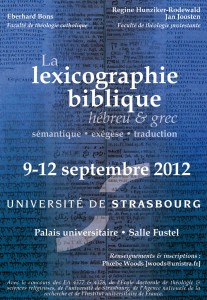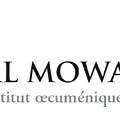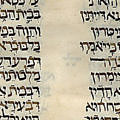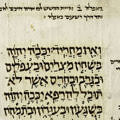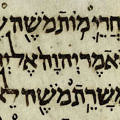The University of Strasbourg hosts a symposium on Biblical Lexicography, September 9-12, 2012.
Topics such as semantics, exegesis and translation will be addressed, dealing with both Hebrew and Greek Scriptures.
Download the program (PDF).
Lexicography, together with grammatical studies and textual criticism, forms the basis of biblical exegesis. Recent decades have seen much progress in this field, yet increasing specialization also tends to have the paradoxical effect of turning exegesis into an independent discipline, while leaving lexicography to the experts. The Strasbourg colloquium will seek to renew and intensify the exchange between the study of words and the study of texts. This will be done in reference to both the Hebrew source text and the earliest Greek translation, the Septuagint. Hebrew and Septuagint lexicography have always been intertwined to a certain extent and the explicit dialogue between disciplines is hoped to prove beneficial for both.
The colloquium will be a forum where new methods and results can be exposed and discussed. Questions to be addressed are how linguistic meaning is effected, how it relates to words, and how words may be translated into another language, in Antiquity and today. Etymology, semantic fields, syntagmatic relations, word history, neologisms—all are relevant. At the same time, the colloquium is open to wider issues of interpretation. The meaning of texts interacts with the meaning of words, yet cannot be reduced to it.
Dimanche 9 septembre 2012
18h00–19h00 Accueil & ouverture, Église saint Guillaume
Gilles Dorival, Aix-en-Provence • La lexicographie de la Septante entre Sem et Japhet.
Réception
Lundi 10 septembre 2012
09h00–09h40 Leonid Kogan, Moscow • The Use and Abuse of Etymology in Lexical Investigations.
09h45–10h25 Kyriakoula Papademetriou, Thessaloniki • The Role of Etymology in the Meaning of Greek Biblical Words. Some Points for its Dynamic Semantic Character.
Pause
11h00–11h40 David Clines, Sheffield • The Recovery of the Ancient Hebrew Language.
11h45–12h25 Abraham Tal, Tel-Aviv • The Historical Dictionary of the Hebrew Language — a Project of the Academy of the Hebrew Language in the Making.
Déjeuner
14h00–14h40 Eberhard Bons, Strasbourg • The “Historical and Theological Lexicon of the Septuagint” (HTLS).
14h45–15h25 Avi Hurvitz, Jerusalem • A Precise Lexicon of LBH: 50 Linguistic Innovations in the Writings of the Second Temple Period.
Pause
16h00–16h40 Ingo Kottsieper, Göttingen • „Was Du von den Alten gelernt …“ — Anmerkungen zu einem Problem der hebraistischen Tradition.
16h45–17h25 Stefan Schorch, Halle-Wittenberg • Lexicon of Samaritan Hebrew According to the Samaritan Pentateuch Tradition.
18h00–18h30 (opt.) Regine Hunziker-Rodewald & Walter Dietrich • Kurze Ausgabe des Hebräischen und Aramäischen Lexikons (KAHAL).
Mardi 11 septembre 2012
09h00–09h40 Walter Dietrich, Bern • Hebräische Hapaxlegomena in den Samuelbüchern.
09h45–10h25 Cécile Dogniez, Paris • Quelques remarques sur le vocabulaire du travail dans la Bible à l’épreuve de la traduction des Septante.
Pause
11h00–11h40 Bernd Janowski, Tübingen • „Traurig und niedergebeugt“. Zur Semantik der Depression im Alten Testament.
11h45–12h25 Regine Hunziker-Rodewald & Nicolas Brulin, Strasbourg • La fonction de la phraséologie spécifique en vue de l’argumentation historique dans Juges 2,11–3,6.
Déjeuner
Visites cathédrale & BNU
16h30–17h10 Eran Shuali, Strasbourg • Comment le verbe Kilkel a-t-il pris le sens de supporter ? La lexicalisa-tion du sens métaphorique en hébreu biblique.
17h15–17h55 Mark Peglau, Dresden • Rausch — die andere Seite des Glaubens. Eine Untersuchung zu Trun-kenheit, Ekstase und ähnlichem in den biblischen Schriften.
18h00–18h40 Romina Vergari, Haifa • Aspects of Polysemy in Biblical Greek. The Semantic Micro-Structure of Κρίσις.
Mercredi 12 septembre 2012
09h00–09h40 Jan Joosten, Strasbourg • The Interplay Between Hebrew and Greek in Biblical Lexicography: Language, Text, and Interpretation.
09h45–10h25 Hugh Williamson, Oxford • Semantics and Lexicography: A Methodological Conundrum.
Pause
11h00–11h40 Mark Smith, New York • Words and their Worlds.
11h40–12h25 Panel final
 En
En Fr
Fr
